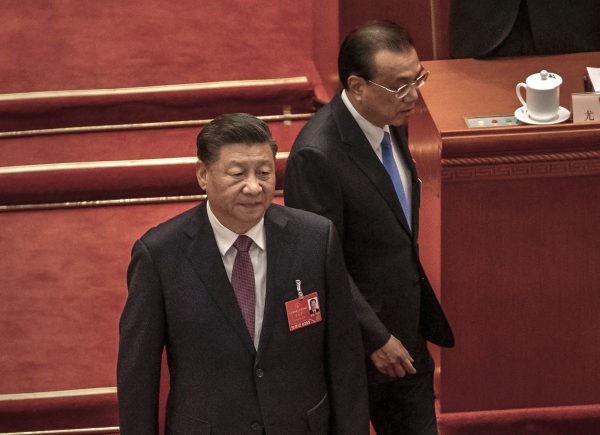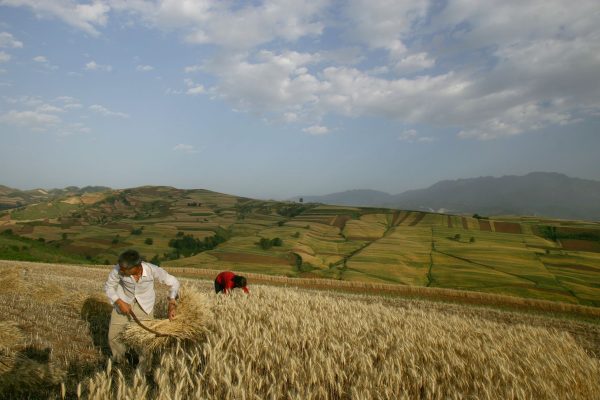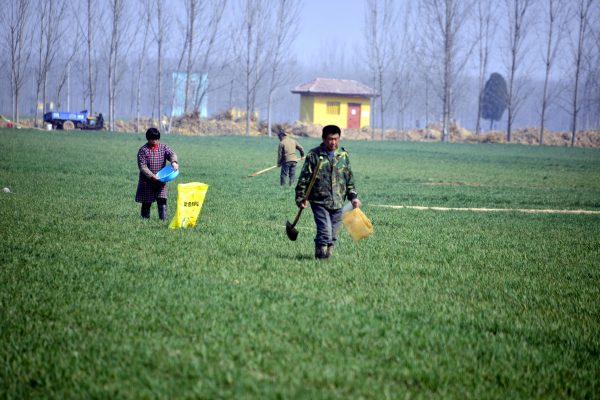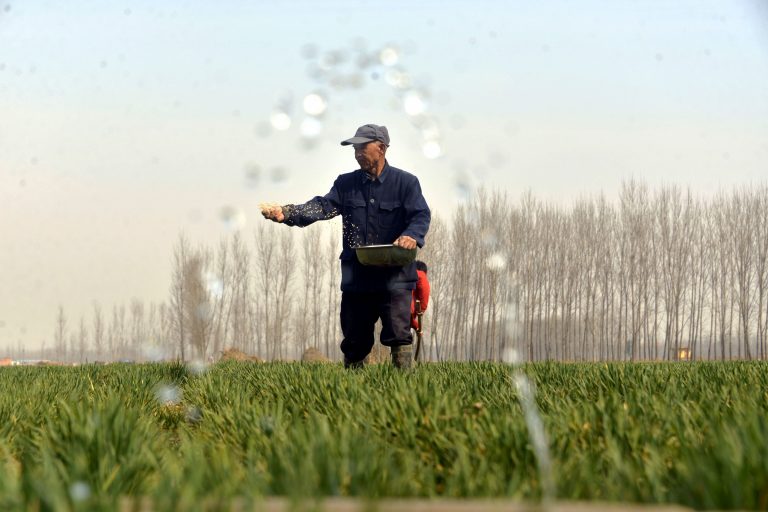War in Ukraine, bad harvests threaten crisis for the world’s largest country by population
At the “Two Sessions” meetings of the People’s Republic of China (PRC) government held starting March 4, Chinese leader Xi Jinping called direct attention to the matter of his country’s food supply, asking “Who will feed China?”
The statements, made on Sunday, March 6, caused quite a stir, especially since they come at a time when Ukraine, one of the world’s largest breadbaskets, is virtually closed off due to the Russian invasion.
While speaking about other challenges facing China, such as the pandemic situation, effects of the “global economic recession,” and the “mounting intensity of great power competition,” Xi warned that “China can’t be complacent on the issue of food security.”
“We cannot assume that industrialization has made the food problem irrelevant, nor should we expect to rely on the international market as a solution,” he said.
Success
You are now signed up for our newsletter
Success
Check your email to complete sign up
READ MORE:
- In Leaked Recording, Elite Chinese Scholar Laments Crippling Dysfunction of Communist Regime
- Xi Tells Putin to Resolve Ukraine Conflict Via ‘Negotiation’, Lifts All Restrictions on Russian Wheat

The Two Sessions are annual conferences of the PRC National People’s Congress and the Chinese People’s Political Consultative Conference (CPPCC), a Communist Party organization that manages society.
Xi had spoken about problems concerning China’s food supply well in advance of the Two Sessions. As reported by state-run media such as Xinhua and the People’s Daily, Xi had on Dec. 8, 2021 warned that food security was a primary “commodity supply” concern and a “major strategic issue.” He also listed crude oil, natural gas, copper, iron and aluminum ore, and other commodities as important to reinforce supply of.
Wang Xinxian, director of the East Asia Institute at Taiwan’s National Chengchi University, told Deutsche Welle that agriculture and food security was a key focus at the Two Sessions.
“Xi Jinping has mentioned the issue of food security many times in recent meetings,” and it’ll be “a big focus of this government work report,” Wang said.
Lackluster crops
The Deutsche Welle report notes that Xi Jinping’s talk on food security at the two sessions came at a time when global food prices were fluctuating due to COVID-19 and the war between Russia and Ukraine. On March 7, the topic of “Ukraine situation pushing up wheat prices” topped search phrases on Weibo, a giant Chinese social media platform.
According to Reuters, Russia and Ukraine are two major wheat producers, accounting for about 29 percent of global wheat exports. The war between them has caused volatility in the grain supply chain, driving the price of wheat to a 14-year high.

On March 5, PRC Minister of Agriculture Tang Renjian reported that according to a recent survey of seedling conditions across the country, China’s wheat crop this winter could be “the worst in history.”
Tang referred to the unusually heavy rainfall experience last summer (which caused massive flooding in central China and possibly killed thousands of people) as causing delays in the normal wheat-producing regions. This caused a drop in production by around one third; a pre-winter survey of the winter wheat crop found that the production of primary and secondary crops fell by more than 20 percent.
Chinese grain imports reach a record high
READ MORE:
- In 2022, Expect China’s Economy to Worsen Further
- As Challenges Mount, China’s Xi Calls for ‘Self-Revolution’
- Premier Li Keqiang Asks Officials to Avoid Communist-style ‘Bureaucratism’ as China’s Economic Crisis Worsens
Although PRC officials have been assuring the public that China’s grain harvest is abundant every year and that there is no cause for concern, China Business News reported that, according to data released by the General Administration of Customs, China’s grain imports in 2021 increased by 25.273 million tons, or 18.1 percent as compared with 2020.
The total accounted for 24.1 percent of China’s total grain output, which was 682.85 million tons. This means that China is only 76 percent self-sufficient in grain.

Among them, China’s soybean production was 16.4 million tons in 2021, which implies that 85.5 percent of China’s soybeans came from imports. Breaking down China’s cereal imports, as of November 2021, the cereal imports of corn, sorghum, barley, wheat, and rice had exceeded imports in the whole year of 2020 by 27.02 million tons, 8.71 million tons, 11.46 million tons, 8.83 million tons, and 4.38 million tons, respectively.
These mean increases of 239 percent, 181 percent, 142 percent, 104 percent, and 150 percent respectively over the 2020 import figures. Among them, the crop that experienced the largest increase in imports is corn, accounting for 10 percent of China’s total corn production, which in 2021 was 272.55 million tons out of the 683-million ton total.
Specter of social unrest as food security issue lingers
The issue of food security in China has haunted the Chinese Communist Party (CCP) leadership under Xi Jinping for years. However, the Party has no good means of effectively handling the problem despite a decade of fierce anti-corruption efforts.
As reported last summer by analyst Larry Ong of political risk consultancy SinoInsider, the CCP anti-corruption campaign began targeting senior officials in the regime’s food apparatus around mid-July.
“On July 12, Ni Meitang, a first-rank inspector with the Department of Agriculture and Rural Affairs, was investigated. The following day, two former officials — former National Food and Strategic Reserves Administration deputy director Xu Ming and Shi Zhonghua, the former chairman of the state-owned Beidahuang Grain Group — were probed,” Ong noted.
Food supply-related agencies in the PRC have not come under much scrutiny until recently, Ong said, likely because of its “relative unimportance as a lever of power, unlike the military or the political and legal affairs apparatus,” as well as Xi not wanting to touch the area for fear of shocks to the system.
“That Xi is moving in on the food apparatus now, however, indicates that the risk of not rooting out corruption has exceeded the risk of doing so.”
Last last year, Japan’s Nikkei reported that China had been scouring the world for food over the past five years, with imports of soybeans, corn, and wheat skyrocketing by two to 12 times, and imports of beef, pork, dairy products, and fruit increasing by two- to five-fold, which has led to a sharp rise in global prices.
The report also mentioned that Chinese people over the age of 50 had experienced food shortages during the Cultural Revolution from 1966 to 1976 and that Xi Jinping had bluntly stated that “our generation remembers hunger to a greater or lesser extent.”
It said, historically, as long as there were food shortages, there would be social unrest, which was a contributing factor in China now.













